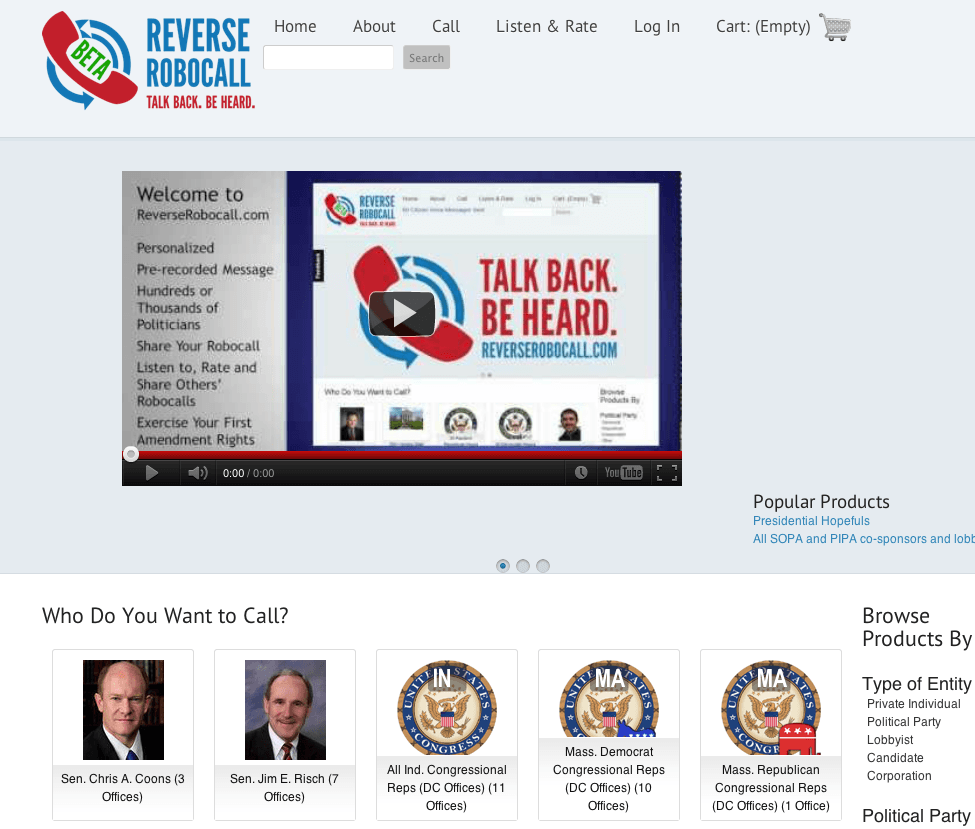Tired of political calls? Place a robocall right back
If you’re interested in getting revenge against those political calls that interrupt your dinner, a new website has set itself up just for you. (Screenshot of ReverseRobocalls.com.)
If you live in one of the early voting states, odds are you’ve been inundated with political robocalls from Republican presidential candidates.
The federal Do Not Call list offers no protection from political callers. A few states have laws banning politicians form calling those on state don’t call lists, but rarely are they enforced. So what’s a tired Floridian or Iowan to do?
How about robocall right back?
Shaun Dakin, the man behind StopPoliticalCalls.org, created reverserobocall.com to help those who receive political calls to make a call of their own. It’s not free, but for a few dollars it gives voters a chance to make their own voice heard.
Dakin said politicians use robocalls “because they can.” He cited Pew research that as of 2010, nearly 70 percent of American voters had received some sort of robocall.
“Whether they’re effectively, they’re totally not effective,” Dakin said. “There are some professors at Columbia and Yale University who have been studying political communication for about 15 years now and they’ve determined robocalls have a perfect record of never having worked.”
Nonetheless, because they’re so cheap and so efficient at reaching voters, more and more politicians are using them.
“My members, over 350,000 members, write to me every day about how much they hate these things and how much they won’t vote for politicians who won’t respect their privacy. The only reason politicians do them is because consultants tell them to do them.”
A few candidates, particularly under-funded candidates,w ill use them in fundraising. Basically, a robocall makes the first contact before passing the call over to a human fundraiser.
But if you’re not satisfied simply by not voting for any candidate who robocalls you, there’s always the option of buying your own robocall. For just $.99 per call, you can blast your congressperson with the recorded message of your choosing. The calls get cheaper the more places you send the same message. For example, a recorded call to all 19 offices of the current Republican presidential candidates for just $4.49.
“Some people really want to call all of Congress, so you can call all of Congress, but that’s going to cost you a little bit more,” Dakin said. So if you want to call all of Congress, 535 members and their district offices, it’s about 1800 phone calls — that’s about $89 to do that.”
Dakin said he’s had multiple people make those calls.
“If you can’t beat them, join them!” Dakin joked.
Though he also points out his organization uses so-called model behavior and doesn’t call cell phones, during dinner time and only main numbers, rather than private messages.
